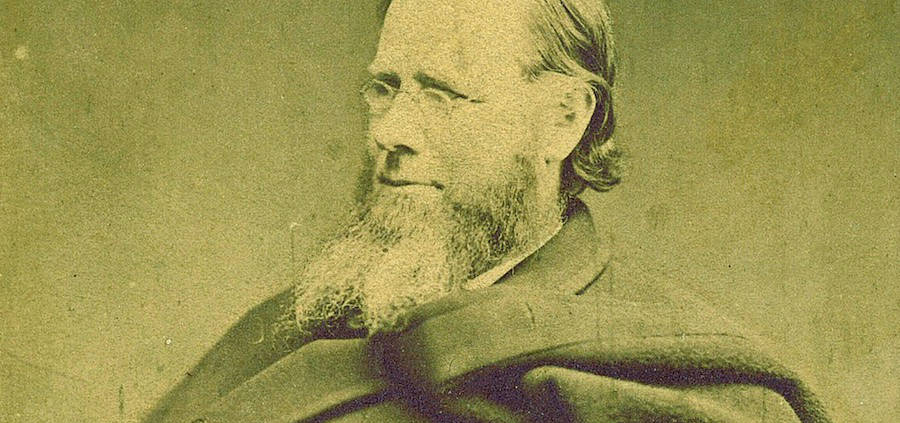Witnessing to Our Good by William Droel
It was called Americanism. Pope Leo XIII (1810–1903) condemned it.
In 1899, Leo XIII sent a three-page letter to the US bishops in care of Cardinal James Gibbons (1834-1921) of Baltimore. It is titled Witness to Our Good, or sometimes On New Opinions of Virtue, Nature and Grace. Leo XIII’s admonishment was aimed at progressive US Catholics. Its general theme speaks to today’s US Catholics, both conservatives and liberals.
The second paragraph of Witness to Our Good mentions Fr. Isaac Hecker, CSP (1819–1888), the principal founder of the Paulists. Hecker himself was not Leo XIII’s villain. In fact, Hecker died more than 10 years before the papal letter. Rather, as Leo XIII says, a translated biography of Hecker, written in 1891 by Fr. Walter Elliott, CSP (1842–1928), “has caused no little controversy” in Europe. Leo XIII goes on to name the erroneous traits of Americanism as conveyed in the biography, more specifically in its French introduction by Fr. Felix Klein (1862–1953), a professor of philosophy and literature in Paris.
Hecker desired a Catholicism appealing to North Americans, rather than one dependent upon European languages, customs, theological formulae, and rituals. Hecker was optimistic that our country’s pluralism, religious freedom, voluntary associations, layered authority, and individual striving are harmonious with Catholicism.
Hecker’s disposition toward the US emerged amid a strong anti-Catholic movement among nativists. Contrary to their attitude, Hecker believed that Catholicism makes a positive contribution to our country. Further, the church learns from give-and-take in our modern world. Thus to live the gospel within the specific conditions of North America requires Christians to engage, humanize, and civilize their surroundings, said Hecker.
Of course, Hecker’s view can go too far. When Christianity is fused with any one culture or political regime, religion is debased. Public figures, as we know, can co-opt religion for their own ambitions.
What is it like in the US today? Our libertarian culture makes individual choice the highest value. Freedom is equated with options, devoid of pre-set, firm obligations. Decisions in our culture are always circumstantial, not directed by any absolutes. A term like alternative facts is accepted as rational. Thus some—conservatives and liberals—are cafeteria Catholics. That is, their faith being captured by our individualistic culture, they select certain Catholic markers of identity while ignoring some basics. A cafeteria Catholic might say, for example, that any individual woman has an unencumbered, autonomous right to abortion. Or a cafeteria Catholic might say that assisting refugees, immigrants, or others in need is an individual’s choice, not obligatory in any way.
Leo XIII’s main concern in Witness to Our Good is the danger of religion overly embracing a particular culture, society, or political order. Yes, patriotism is healthy. In the US, our patriotism is devotion to and respect for our experiment in democracy, regardless of anyone’s religion or birthplace. Be aware, however, that healthy patriotism differs from nationalism: the attitude that our country is ipso facto superior, that it stands alone, that it is destined to expand with never an apology. A Christian nationalist uses religion to distort history, to excuse the serious shortcomings of their political favorites, to claim the superiority of their type of Christian over other denominations, and to favor their race or ethnicity over others.
Perhaps Leo XIII’s Witness to Our Good would have better made the point without dragging Hecker or an obscure introduction to a biography into it. Like his predecessor, Chicago’s own Pope Leo XIV must deal with the position of Catholicism within US culture, and other cultures as well. He knows that some US Catholics, including its leaders, have bought into our extreme style of individualistic capitalism and the political policies supporting it. There are also a few Catholics who, reacting to the defects in our culture, opt for sectarianism, a trip to an imagined golden age. This retreat is no better.
A genuine Catholic life “in our age,” says Hecker, must take its place “in busy marts, in counting rooms, in workshops, in homes and in the varied relations that form human society, and it is into these that sanctity is to be introduced . . . [We are to] seek occasions to practice virtue, to do something for God, and these occasions are, if I may use the expression, right under our noses.” ♦
William Droel is associated with National Center for the Laity (PO Box 291102, Chicago, IL 60629). It distributes a new edition of Leo XIII’s encyclical, On the Condition of Labor ($7).





Leave a Reply
Want to join the discussion?Feel free to contribute!